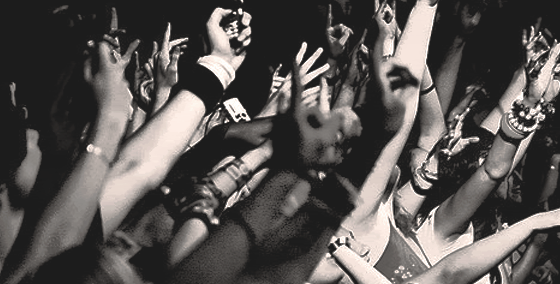These are the mashes that are worth hearing, so stop your searching and instead settle down at your computer… turn up your speakers… and get ready for that sweet nectar that only EARMILK can give ya. Let's GO!
Terry Urban is no stranger to EARMILK, as we've covered his Nas x Amy Winehouse mixtape titled Me & Mr. Jones, as well as his SBTRKT x Iggy Azalea compilation titled SBTRIGGY. No doubt this Ohio native is immensely talented in fusing varying artists and their respective sound into worthwhile projects, and his latest work, Portugal, The Man & Friends, is no different. Combining the likes of Portugal, The Man with various artists such as J. Cole, Kanye West, and more, you're bound to find a song that appeals to you. As of now, I'm quite partial to "Can't Get Enough Waves" and "Modern Yeezus" but I leave it to you decide which is the standout track among the 5 presented.
[soundcloud url="https://api.soundcloud.com/playlists/8392838" params="" width=" 100%" height="450" iframe="true" /]
Moving on to the single mashups, we've got some standout tracks courtesy of DJ Y alias JY, the talented duncan gerow (when does this guy not produce a hit?), Shahar Varshal, and others. Starting off with DJ Y alias JY's merging Genesis and Daft Punk? Oh hell yes, why thank you very much. As soon as I hear Phil Collins' easily identifiable voice, I perked up and stopped reading whatever I was reading. Once, Daft Punk's "Lose Yourself to Dance" was introduced, I was vibing real hard. I'm not sure if I prefer it over Daft's original version, but it's pretty damn close. With Gerow, however, we get something on the other end of the spectrum. Making full use of Sango, an artist over on Soulection's extremely talented roster, and his "When I Need You The Most", Gerow overlays Ciara's "Body Party" to great effect. The original "Body Party" seems to have a more sensual atmosphere to it, but I was hooked hearing Ciara over those quick hitting hi-hats and that rumbling bass line. Plain and simple: a must download.
Finally, I want to mention Kill mR DJ's "You've Got the Crossfire" featuring Florence & The Machine with Brandon Flowers (he of The Killers fame). Florence Welch's voice in any capacity is always amazing, and that's no different when put on over the pop rock nature of Flower's "Crossfire". However, Kill mR DJ didn't toss out Flower's vocals, instead using the original vocals to accentuate the mashup nicely. This is heard best near the end of the mash when Welch's and Flower's vocals play off each other elegantly.
As always, there are more mashups below for your listening pleasure so get to listening (and downloading if you like). Hit up the comment section with your feedback and/or preferred mashup(s) of this week's list.
[soundcloud url="https://api.soundcloud.com/tracks/106776532" params="" width=" 100%" height="166" iframe="true" /]











